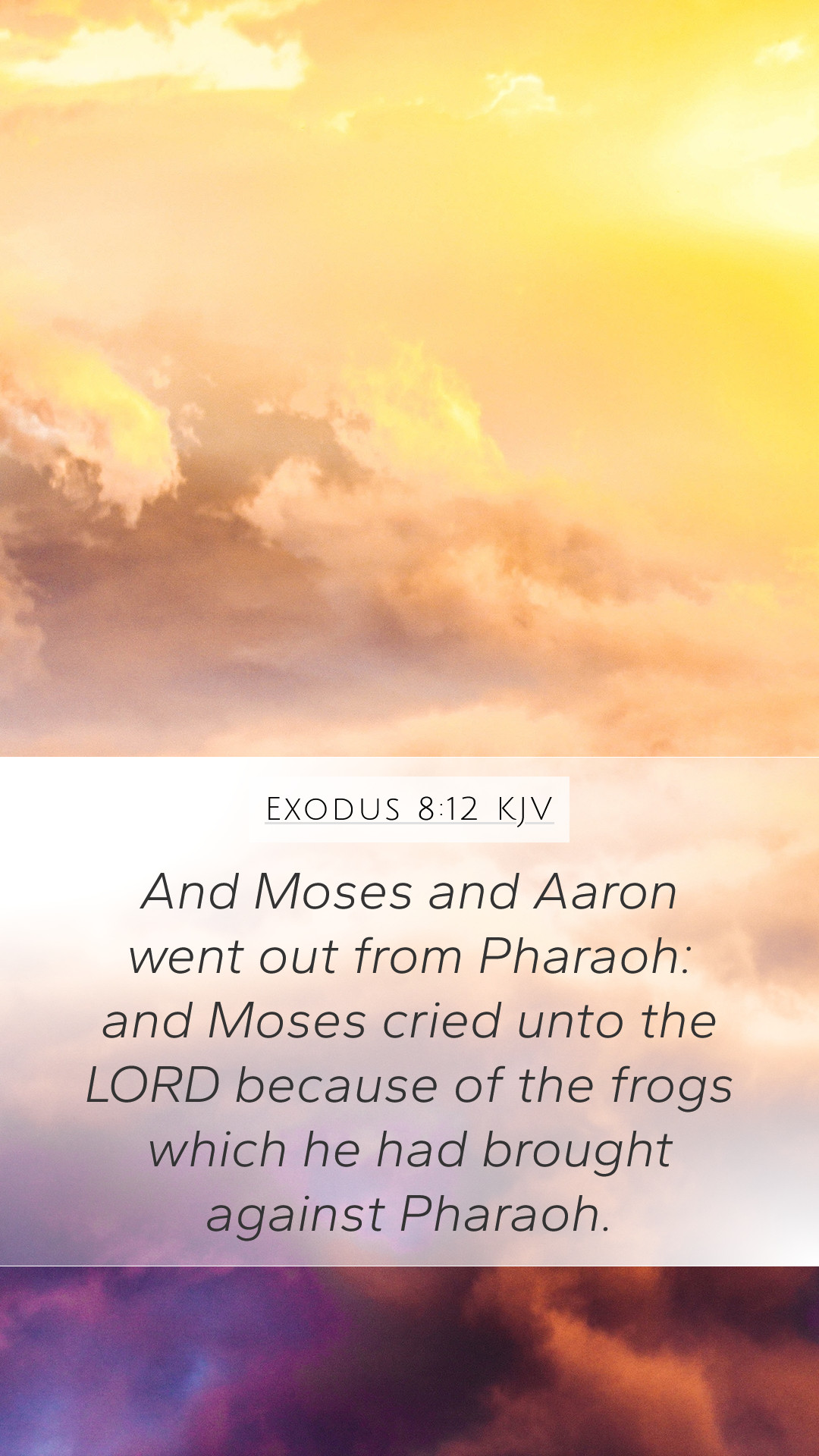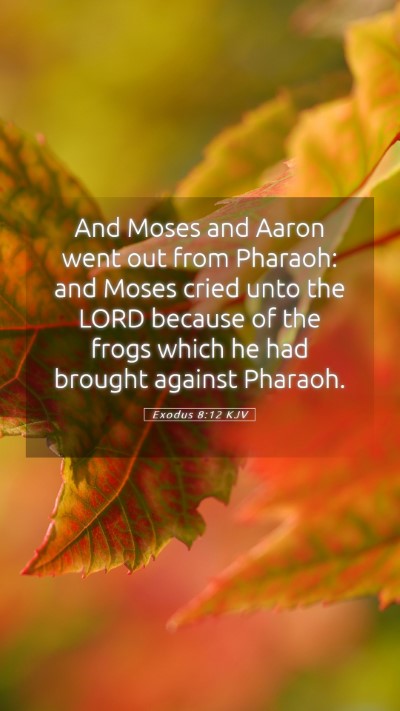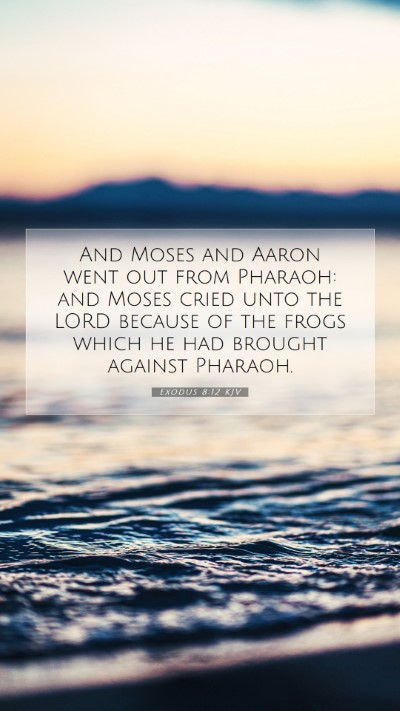Understanding Exodus 8:12
Exodus 8:12 states: "And Moses and Aaron went out from Pharaoh: and Moses cried unto the Lord because of the frogs which he had brought against Pharaoh." This verse occurs during the second plague of Egypt, where frogs were sent as a judgment against Pharaoh and the land. Understanding this passage requires a look at the broader narrative, the symbolism of the frogs, and the implications of Moses’ actions.
Bible Verse Meanings
The significance of this verse lies not only in the act of crying out to God but also in the acknowledgment of the troubles besetting Pharaoh and his people. Moses, as the mediator between God and Pharaoh, represents the voice of the oppressed Israelites who are suffering under slavery.
Insights from Public Domain Commentaries
- Matthew Henry: In his commentary, Henry emphasizes the importance of prayer in times of distress. Moses’ plea to the Lord illustrates his dependence on divine intervention and highlights the contrast between the power of God and the impotence of Pharaoh's magicians who could not remove the frogs.
- Albert Barnes: Barnes reflects on the symbolic meaning of the frogs. They represent not only a physical nuisance but also the spiritual pollution of Egypt. The plagues were a direct challenge to the Egyptian gods, indicating that the lordship of Yahweh over the God of the Nile was affirmed through the plague of frogs.
- Adam Clarke: Clarke points out the historical context wherein the frogs were part of a cycle of worship to the Egyptian goddess Heket, often depicted as a frog. Clarke elaborates that the plague served to demonstrate the futility of Egyptian deities and the sovereignty of the God of Israel.
Historical Context of Exodus 8:12
The events surrounding this verse take place during a dramatic confrontation between Moses and Pharaoh. God had sent plagues to persuade Pharaoh to release the Israelites from slavery. Each plague was not only a judgment but also an act of demonstration that showcased God's power over all aspects of creation.
Significance of the Frogs
The frogs were plentiful and became a source of great discomfort for the Egyptians. Their omnipresence stands as a reminder that God's judgments can invade every aspect of life. In this sense, it serves as a biblical exegesis on the need for repentance and the futility of resisting God's will.
Bible Verse Interpretations Through Prayer and Supplication
Moses crying out to God reveals a deeper layer about the role of intercessory prayer. It exemplifies how spiritual leaders should act in moments of crisis, seeking God's guidance and intervention. This can be related to modern practices in Bible study groups, where prayerful reflection and supplication facilitate deeper understanding and connection to God.
Related Bible Cross References
- Exodus 7:26: The context of the plagues and the challenge of God’s commands.
- Exodus 8:6: The introduction of frogs as a plague, highlighting God’s power over nature.
- Exodus 10:4: The subsequent plagues that demonstrate God's authority further.
- Psalm 105:30: A reflection on the wonders God worked in Egypt, stressing the significance of the plagues.
Application of Exodus 8:12 to Daily Life
In contemporary application, verse 8:12 reminds us of the value of approaching God in times of trouble, whether personal crises, communal challenges, or societal issues. The lesson of reliance on God transcends time, emphasizing that earnest prayer remains a potent tool amidst adversity.
How to Interpret Bible Verses
Exodus 8:12 serves as a rich example of how to apply biblical passages. Here are a few suggested approaches:
- Analyze the historical context that frames the passage.
- Consider the symbolism inherent in the elements of the narrative.
- Reflect on the moral and spiritual implications of the text.
- Engage in prayerful discussion within bible study groups to explore diverse interpretations.
Understanding Scripture: A Call to Action
For anyone looking to deepen their understanding of scripture, Bible verse commentary provides essential insights that illuminate passages like Exodus 8:12. By engaging with commentaries, seeking out bible study resources, and participating in discussions, believers can cultivate a richer faith experience.
Conclusion
Exodus 8:12 offers profound lessons on God’s sovereignty, the importance of prayer, and the futility of worldly power against divine will. As we continue our bible study lessons, may we learn to cry out to God earnestly in our own lives and recognize His mighty hand at work even in the most challenging circumstances.


